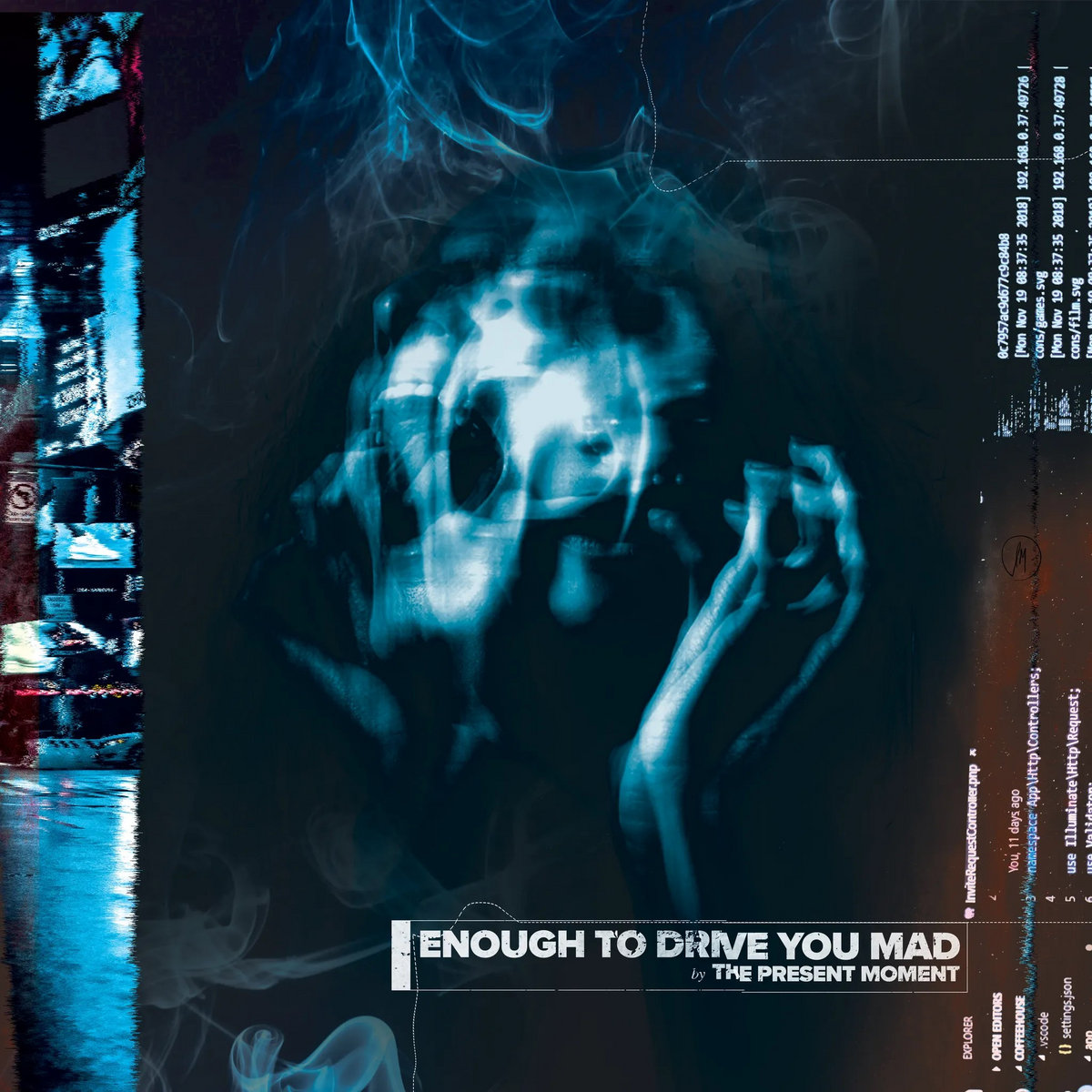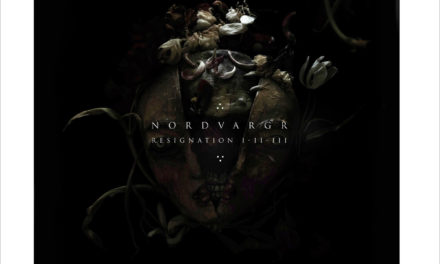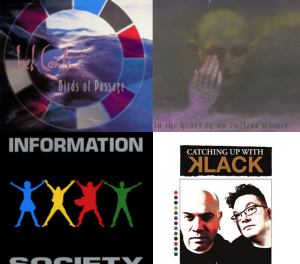
The Present Moment
Enough to Drive You Mad
self-released
“Mature” is a useful, if loaded descriptor for a record. On the one hand, it can be a euphemism for ‘accomplished but unexciting’, the work of an artist who knows their craft but has lost some of the juice of their earlier and presumably rawer material. On the other, it can be used to denote when an artist’s development has advanced to a point where potential has been realized and on full display. The Present Moment’s Enough to Drive You Mad rides that line of maturity in some interesting ways; it’s by far the project’s best written and performed record of song-driven wave music, sacrificing some of the immediacy of earlier releases for a slower, but ultimately satisfying climax.
A key to the record’s sound is the collaboration between TPM founder Scott Milton and composer and instrumentalist Jason Dunn, building out the project’s classic dour synthpop sound into full band arrangements. The partnership goes beyond production, as the duo are co-credited with all the music and lyrics, which would explain how developed the record sounds; it’s hard to imagine an earlier incarnation of The Present Moment pulling off the shifting and layered electronic-rock a-la Bowie’s Outside that makes up the body of the record. If that comparison sounds far-fetched, go listen to the fraught, buzzing bass and drums, layers of samples and synth noise and atonal guitar that lead off the record on “White Picket Dreams”, or the suave bass-guitar driven new wave of “Life Line”; each song displays genuine complexity in their construction, and serves to highlight Milton’s voice and lyricism, and by extension the album’s theme of disillusionment, American style.
And when it works well, it works really well. Pre-release single “Dharma” has a deceptive depth both in its simple looping rhythm and evolving synth patterns, and Milton’s forlorn and rueful plea for pharmaceuticals even as they derail his quest for enlightenment. And album closer “America How Are You?” is one of those closers that acts like a coda to everything that preceded it musically, with the record’s broad strokes spelled out fully and instrumentation recalled through shifting layers of keys and vocals, all the more mournful for its resignation.
The trade-off for all of this is that while the album has reasonably good hooks, the songs aren’t put together to highlight them. Without wanting to put too much of as premium on pop songwriting, you’ve always been able to rely on The Present Moment for a catchy, memorable chorus or two, and they’re thin on the ground here, and a lot of the album passes by without individual moments leaping out of the speakers to grab your attention, melodies and parts only coming into focus when actively listening. For all its obvious and subtle charms, Enough to Drive You Mad is a record that needs you to invest yourself in it to get the most out of it as an experience. Those that do will find plenty to ponder and enjoy.




